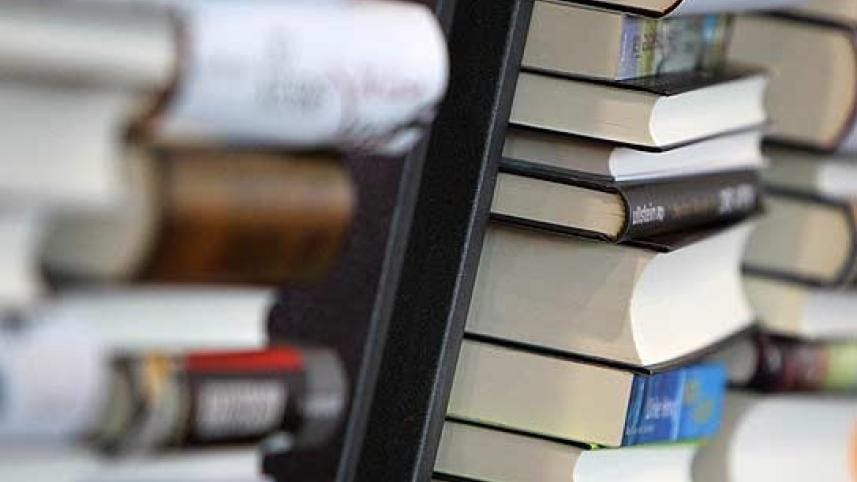Our 'entangled freedoms'

Watching a great writer think out their ideas is always a thing of wonder. I was lucky enough to have this experience when I attended the Arthur Miller Freedom to Write Lecture recently. Given as a part of the annual PEN World Voices Festival, this year's honoree was the Pulitzer Prize-winning writer Ta-Nehisi Coates. It was a fascinating lecture that took perennial themes of US-American history and weaved them into something new, timely, and universal. Coates argued for seeing rights as "entangled freedoms," and it made me think about how fragile real freedom is, and what this means for a young democracy such as Bangladesh.
This year, the PEN World Voices Festival focused on the current fever of book bannings in the US, alongside the ever-increasing threats to writing and writers around the world. The curtailment of free speech and writing is especially distressing for the liberal classes in the US, given the values enshrined in the First Amendment with its guarantee of freedom of expression and the press. Yet, values are not not only abstract ideals but things that must be made real through our actions in the world, and the US, despite all its rhetoric, has rarely measured up to its talk meaningfully.
Coates laid out the significance of current book bannings in terms of the history of violence against Black people. He pointed out that literacy was banned for slaves by the slave codes and then censored for their descendants for most of US history through targeted laws such as Jim Crow.
Coates spent much of his lecture on the hurdles placed for Black people against participating in public discourse, and how their critics often appealed to free speech while denying this same right to them. He cited the life of Fredrick Douglas as evidence of the former, and how those enslaved had to persist, hoping that their words would make a difference. He talked about the debates over the movie The Birth of a Nation, recognised for inciting the Ku Klux Klan, the White terrorist organisation, in the 20th century, and how films intended to rectify the movie's fabrications were widely excluded from theatres.
The double standards faced by Black people extend beyond the realm of expression, and to voting and owning property. Coates argued that people's rights and capabilities are interconnected and, in an eloquent turn of phrase, all true freedoms exist entangled. He likens them to a concert and a symphony; they are like music in that they only are real when being performed. The phrase "entangled freedom" has stuck with me, with its inherent semantic contradictions echoing a resonant truth. Only a sensitive writer with a nuanced understanding of the world, and the obligations people have towards one another, could have penned it.
I found his point about the experience of Black folk vis-a-vis freedom of expression and the freedom to write and express especially poignant. For the Black population in the US, literacy has been deeply connected with liberation. It marched hand-in-hand with democratic practices such as voting and entering the middle class, particularly through property ownership. These achievements, consequently, were also harder for minorities. This was so because they were capabilities that allowed people full personhood in both private and public contexts – privileges only afforded to white men for much of US history.
Our abilities to write books, poetry, and novels, as well as fully participate in society through ownership of property and citizenship rights, all speak to a wider sense of power and freedom. Literature simultaneously symbolises and manifests these capabilities. It is in this complex interconnection that our entangled freedoms emerge. Consequently, book bans and similar acts of intimidation on writers and people's freedom of expression, Coates was saying, also have to be understood as a part of a suite of rollbacks that are widescale economic inequality and the curtailing of voting rights. They are the canary in the coal mines for the collective backsliding on our abilities to improve our material lives and our lives as citizens in a democracy.
I think the lessons of Coates' expositions on entangled freedoms apply to Bangladesh well, where our democracy is still young and democratic traditions have not yet firmly taken root in our social institutions. We have to recognise how much of our freedoms are interdependent. Our freedom of expression, for instance, is connected to our ability to access proper education, participate in politics without fear, and pursue economic opportunities unhindered.
The importance we have placed on literacy and education in our developmental goals has helped our country move ahead of our giant neighbour, as per Nobel laureate Amartya Sen, in key social indicators of development. Literacy and education have been a tool for liberation for Bangladesh as they had been for Black people in the US; they let us express ourselves, engage in civic activities, and pursue upward mobility. Our NGOs and social enterprises are lauded across the world largely because they have played such an effective role in bettering education and health for Bangladeshis.
At the same time, it is precisely because we have come so far so fast that we have to be mindful of the fact that our capabilities are fragile and can be easily rolled back. We risk being complacent over threats to our broader democratic rights, especially our freedom of expression, at our peril, and we also have to ensure people's right to economic mobility and democratic participation. The current fever of book banning in the US shows how deeply ingrained values of freedoms can quickly unravel even in mature democracies. We have to ask if we see the canaries in our coal mine.
Shakil Rabbi is an assistant professor at Virginia Polytechnic Institute and State University. He studies how rhetoric, languages and writing shape our social lives. Reach him at ssrabbi@gmail.com



 For all latest news, follow The Daily Star's Google News channel.
For all latest news, follow The Daily Star's Google News channel.
Comments